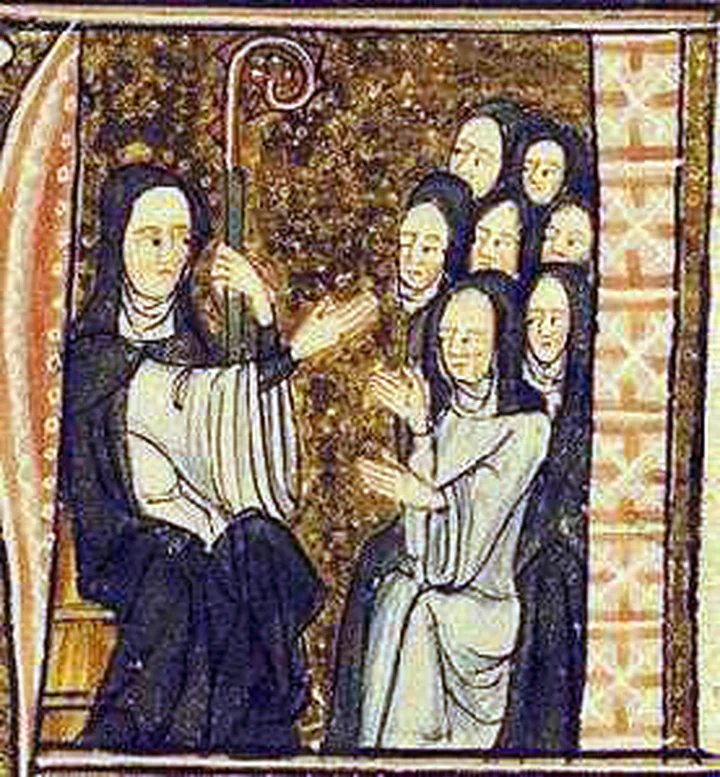heroine (n.) “demigoddess,” from Latin heroine, heroina “a female hero, a demigoddess” (such as Medea), from Greek hērōine, fem. of hērōs
###
This column all started with a minor disagreement, whether it was sexist to use the word “heroine.” We’ve certainly come a long way from “Mrs.” and “Girl Friday” and “You’re so pretty when you’re angry.” These days, female actors are (usually) “actors,” “nurses” can be male, female or anything else, “chairman” has given way to “chair,” similarly a “police officer” can come in any gendered version. Of course, like most language change, it can get a bit silly. For instance, five years ago, Canadian Prime Minister Justin Trudeau scolded a woman in the audience who’d asked a question: “We like to say ‘peoplekind,’ not necessarily ‘mankind,’ because it’s more inclusive,” he said. (He then got it from both sides, both for mansplaining and for virtue-signaling.)
How about heroines? Those brave souls who fly in to save peoplekind from an awful fate, and who happen to have XY chromosomes: are they “heroines” or “female heroes”… or just “heroes”? I’m going to go with the former, because I want to make another point, and don’t want to bore you to death with semantics. They’re all heroines for the next five minutes, and I want to talk about epic heroines.
The literary form known as the epic is old, at least four thousand years old, since we have, in various copies, the Assyrian Epic of Gilgamesh, which dates back at least to 1600 BC and whose hero is probably based on a real king of the Sumerian city of Uruk who reigned around 2800 BC. Then we’ve got Homer’s heroes: Achilles, Hector, Ulysses and all the rest. In the Jewish Bible, there’s mythical Moses, while (later) Brits had the Beowulf and semi-mythical King Arthur…
Notice anything? They all, to a man, men. If you’re going to go with epics, you’re probably stuck with dudes, since it’s pretty hard to find worthy heroines. Maybe Euripedes’ jilted avenger Medea, or that other vengeful woman, Electra? There’s the (unhistorical) Esther, a Jewish orphan who was supposed to have become become Queen of Persia and saved her people from genocide. But they’re rather tame as heroes go — none evoke, for instance, the kind of prose that introduces the Iliad: “Sing, Goddess, Achilles’ rage, Black and murderous, that cost the Greeks incalculable pain, pitched countless souls.” (You know you’re in for a wild ride before you’ve gone beyond the first line!)
Hildegard of Bingen, 1098-1179, was the greatest polymath of her time: author, composer, philosopher, medical doctor, scientist and more. (Unknown 13th century painter, public domain).
All of which got me thinking about more modern, not-quite-epic heroines. On the fictional side, I’d name Jane Eyre, Hermione Granger, Ellen Ripley, Lisbeth Salander, Buffy Summers, Katniss Everdeen. And for real-life heroines, off the top of my head: Hildegard of Bingen, Queen Elizabeth I of England, Joan of Arc, Florence Nightingale, Harriet Tubman, Mother Jones (“The most dangerous woman in America”). Coming closer to our own time, how about Jane Goodall, Dian Fossey, Malala Yousafzai, Princess Di (for her willingness to embrace AIDS patients when everyone else was shunning them), Greta Thunberg…
Now I’d like to hear of your favorite heroines, real and fictional.
Greta Thunberg at a climate change rally in Denver, 2019. (Anthony Quintano, Creative Commons, CC BY 2.0).


CLICK TO MANAGE